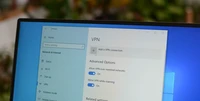Federal Court overturned the FCC's ruling, and net neutrality protection is once again at risk.

The internet neutrality was lost again after the Federal Court ruled that the FCC does not have the authority to prohibit two-tiered internet. In response to calls from Apple and more than 40 technology companies, the FCC acted to treat all users equally.
This allowed Internet Service Providers (ISPs) and mobile carriers to once again receive payments from large websites and services, giving them priority over the rest of the internet traffic.
Internet Neutrality
Internet neutrality means that Internet Service Providers (ISPs) treat all websites and internet services equally. They were able to charge some sites for payment, speeding up their traffic while slowing down the traffic of the rest of the web. Additionally, they could receive money from one service and block traffic to competing services.
Internet neutrality has been lost and regained through continuous legal battles, with the FCC restoring it during Biden's presidency last year. Its future is uncertain, as a lawsuit in the background continued while Trump promised to reverse it during his term.
'Internet Neutrality Protection Lost Again'
The court already ruled that this is bad news. They determined that the FCC does not have the authority to set internet neutrality rules.
Using traditional legal tools, this paragraph argues that broadband Internet service providers are only providing "information services" based on section 153(24) of the Communications Act. Therefore, the FCC claims it lacks the legal authority under section 153(a)(51) of the Communications Act to enforce a neutral internet policy.
This law classifies mobile broadband as part of "broadband Internet services" listed in Chapter III of the code and allows for the application of net neutrality regulations. Thus, we accept the request for review and revoke the FCC's order.
Based on a Smart Ruling
The 'Chevron deference' ruling came from a 1984 court case. According to this ruling, if a federal agency claims it has the authority to do something, a federal court must follow that claim. In other words, when the FCC (Federal Communications Commission) claims it has the right to restore internet neutrality, the court cannot determine that it does not.
However, this ruling was overturned last year, and other courts gained the power to overrule agencies like the FCC. Currently, the Sixth Circuit Court of Appeals also made the same judgment, indicating that internet neutrality protection no longer exists.
This is bad news for startups and consumers. It means that technology giants can pay ISPs for more bandwidth than their smaller competitors, reducing competition and ultimately putting consumers at a disadvantage.
Despite many tech giants having enough funds to pay for preferential treatment, they are among those opposing internet neutrality supporters. In this battle, companies that can be considered valuable include Alibaba, Amazon, Dropbox, eBay, Facebook, Google, Microsoft, Netflix, Reddit, Snapchat, and Spins.
Photo: Tom Parkes / Unsplas
カテゴリー
最新記事
- 静かなキーストロークと高い生産性の向上を実現する、STEALTH KEYBOARD SM3 メカニカルキーボードのレビュー。
- その古い電話が目の前で火事の原因になった。
- アップル招待とアップルカレンダーの違い:10個のポイント
- アップル @ ワーク:2025年にアップルがGoogle Workspaceに対抗する製品をリリースするのか?
- Apple は iPhone SE 4 を発表する特別なイベントを開催する可能性が低い。
- 今日の NYT Connections ヒントと解答 (2 月 8 日 #608)
- Ubuntu 20.04 LTS のサポートが終了します。
- 読み込みが間に合わない? AI に読んでもらいたいですか?
- これは私が愛用する聖杯 ブルーレイプレーヤーです。
- 来週、新しい Apple 製品の発表が予定されています。詳細は下記の通りです。



